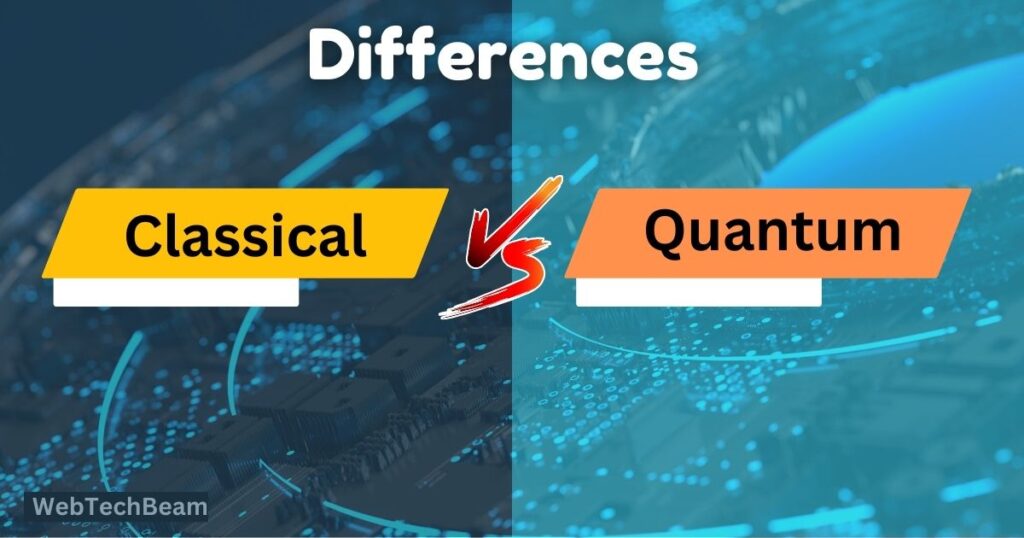Quantum app development focuses on creating software that harnesses the principles of quantum computing. Unlike classical computers, quantum computers utilize qubits, which can represent both 1 and 0 simultaneously. This unique characteristic allows for the rapid and efficient resolution of highly complex problems. The aim of quantum app development is to utilize these capabilities for practical applications.
Developers prioritize the creation of algorithms that harness the power of superposition and entanglement, which have the potential to greatly impact fields such as cryptography, optimization, and drug discovery. Acquiring knowledge in quantum app development is essential to remain at the forefront of current technological advancements. Businesses should actively explore the possibilities presented by this groundbreaking technology.
Why Does Quantum App Development Matter?
Quantum app development matters because it opens new possibilities in solving complex problems efficiently. Traditional computing struggles with certain tasks that quantum computing can handle quickly and accurately. This can revolutionize industries like cryptography by providing better security measures. It also aids in optimization challenges, leading to more effective solutions.
In addition, it speeds up the process of drug discovery, presenting possibilities of significant advancements in the field of medicine. Embracing this technology is essential for companies to maintain competitiveness in a rapidly changing technological environment. Recognizing its significance is crucial for fostering future innovation.
What are the types of Quantum Computing

- Quantum Annealing
Quantum annealing efficiently solves optimization problems by leveraging quantum mechanics, allowing for the identification of the minimum solution. Unlike classical approaches, it simultaneously explores multiple solutions, resulting in faster and more accurate outcomes. Industries can employ quantum annealing to enhance logistics and finance, making it a potent tool transforming the way we tackle complex tasks in the present.
- Gate-Based Quantum Computing
Gate-based quantum computing is dependent on the use of quantum gates to manipulate qubits in order to perform complex computations. These gates function in a manner akin to classical logic gates, but possess additional capabilities. By leveraging superposition and entanglement, these gates enable the rapid solution of problems. This technique greatly enhances tasks such as cryptography and data analysis, making it a crucial methodology in the development of robust quantum applications in the present day.
- Topological Quantum Computing
The utilization of anyons in topological quantum computing helps safeguard information against errors, thereby enhancing its resilience. By employing braiding operations, this technique securely handles quantum information, effectively reducing the impact of decoherence and external disturbances on qubits. Companies that adopt topological methods can create more stable quantum applications, thus marking a notable progress in dependable and efficient quantum computing in the present era.
- Quantum Simulations
Quantum simulations are instrumental in emulating intricate quantum systems, leading to enhanced comprehension. They offer valuable insights into the behaviors of molecules and materials. Through these simulations, we can forecast reactions and properties with remarkable precision. This methodology holds immense significance in the fields of chemistry and material science, aiding companies in the efficient discovery of novel materials. Scientific research greatly benefits from quantum simulations, effortlessly unlocking innovative solutions.
- Measurement-Based Quantum Computing
Pre-prepared entangled quantum states form the basis of measurement-based quantum computing. Instead of complex quantum operations, this approach utilizes specific measurements to advance the computation. By simplifying quantum operations to measurement sequences, it offers a user-friendly experience and reduces unnecessary complexity. Its main advantage lies in enabling developers to concentrate on problem-solving, making quantum computing more accessible and fostering innovation.
Differences Between Classical and Quantum App Development

| Classical
1: Classical app development relies on binary logic (bits) that handle one calculation at a time (either 0 or 1). |
Quantum App Development 1: In contrast, quantum app development uses qubits, which can perform multiple calculations simultaneously due to superposition and entanglement. This allows quantum apps to potentially solve problems that are infeasible for classical apps. |
| 2: Classical app development utilizes traditional algorithms that follow a linear or iterative approach to arrive at solutions. | 2: Quantum app development, however, leverages quantum algorithms like Shor’s or Grover’s algorithm that can search, factorize, or optimize far more efficiently by exploring many solutions simultaneously. |
| 3: Classical apps can face significant performance degradation and resource constraints as the complexity of tasks increases, often necessitating clusters or more powerful hardware. | 3: Quantum apps are designed to handle massive parallel processing natively, offering unprecedented efficiency and scalability for certain complex computational tasks. |
| 4: Classical app development benefits from mature error handling and correction techniques that are well understood and widely implemented. | 4: Quantum app development, however, grapples with high error rates and decoherence issues. Developing robust quantum mistake correction ways remains a important challenge in this field. |
| 5: Classical computing hardware is well-recognized, with a plethora of options for CPUs, GPUs, and other components. | 5: Quantum computing hardware, on the other hand, is still in budding stages with limited obtainability. Quantum app development requires particular hardware such as quantum processors and cryogenic systems to uphold quit states. |
Applications of Quantum App Development
Quantum app development has several vital applications that deserve attention.
1. Cryptography and Cybersecurity
The emergence of quantum computing revolutionizes cryptography, enabling the development of robust encryption techniques that guarantee unparalleled data security. Consequently, existing cryptographic systems may become obsolete in light of quantum advancements. To ensure the protection of sensitive information, it is imperative to enhance cyber security protocols, verifying even the most nuanced details. In anticipation of this transformative change in data protection, industries must proactively prepare. Consequently, comprehending the impact of quantum technology becomes imperative for devising future cybersecurity strategies.
2. Drug Discovery and Development
Quantum computing accelerates and enhances the drug discovery process, enabling accurate simulation of molecular interactions and expediting the identification of new medications. By minimizing trial-and-error, this approach saves valuable time and resources. Quantum computers provide unprecedented insights into the behavior of drug molecules, holding the potential to revolutionize medicine and develop highly effective life-saving treatments.
3. Financial Modeling and Risk Analysis
The advent of quantum computing has revolutionized monetary modeling by providing faster and more accurate predictions. This innovative technology significantly improves the efficiency of risk analysis and enables the identification of potential market trends while reducing uncertainties. By leveraging precise data insights, firms can develop enhanced strategies that are based on reliable information. Quantum applications simplify complex calculations, thereby increasing the reliability of financial decisions. Ultimately, this advancement promotes financial stability and unlocks greater growth potential for businesses.
Also Read: Why is the Boost Mobile App Not Working?
What Are the Benefits of Quantum App Development?

Here are very useful benefits of Quantum app development:
- Quantum application development offers substantial benefits compared to classical approaches.
- These apps are more efficient in solving complex problems compared to traditional apps.
- They improve effectiveness and expandability, effortlessly managing vast amounts of data.
- Quantum applications facilitate groundbreaking progress in diverse fields such as medicine and finance.
- They enhance cryptographic security, providing stronger protection for sensitive information.
- Quantum apps provide more precise predictions and insights.
- Numerous fields could be revolutionized by the potential held within this technology, propelling future innovations.
Challenges Faced in Quantum App Development
- Hardware limitations
The hardware for quantum computing is currently in its early stages of development and faces various limitations. To operate accurately, quantum processors and qubits need to be maintained at extremely low temperatures. This requires specialized cryogenic systems to preserve their fragile quantum states. The limited availability of quantum hardware presents challenges for its widespread adoption, ultimately hindering the progress in developing quantum applications.
- Error rates and decoherence
The presence of high error rates in quantum computing poses numerous challenges for developers to tackle. Rapid disruption of qubit states, known as decoherence, undermines the reliability of calculations. Researchers are diligently striving to address these issues through diverse techniques. The mitigation of errors will enhance the potency and accessibility of quantum computing for all.
- Algorithm development
To create quantum algorithms, one must possess a profound comprehension of quantum mechanics concepts. These algorithms have the capability to solve problems at a quicker pace compared to classical algorithms. Quantum developers must exhibit skills and creativity to foster innovation in this field. They leverage principles from quantum mechanics to enhance calculation optimizations. Overall, this exciting field presents boundless opportunities for technological advancements.
The Future of Quantum App Development

1: Emerging trends and technologies
Emerging trends include error correction improvements, reducing quantum computing’s high failure rates. Technologies are advancing with more affordable and accessible quantum hardware options. Developers are creating user-friendly quantum programming languages, making it easier for everyone. Collaboration between companies and research institutions accelerates progress significantly. These trends and technologies promise an exciting future for quantum app development.
2: Potential impact on various industries
The advanced capabilities of quantum computing are poised to revolutionize various sectors. The healthcare industry stands to gain with faster drug discovery and enhanced diagnostics. Financial institutions can expect more precise risk valuations and improved fraud detection. Industrial processes have the potential to become more efficient and require fewer resources. Overall, quantum technology is paving the path for unmatched innovation in diverse industries.
3: Opportunities for developers and businesses
The advent of quantum computing presents exciting opportunities for the development of innovative applications and the expansion of businesses. Developers now have the capability to create apps that can solve problems at an accelerated pace. Furthermore, businesses can enhance their data security measures and operational efficiency through the utilization of quantum computing. In the market, there is an increasing need for skilled quantum developers, and those who embrace this technology early on will gain a significant competitive advantage.
Conclusion
The field of quantum computing is rapidly advancing and holds tremendous potential. It offers the promise of revolutionizing industries and tackling intricate problems. Both developers and businesses need to be ready for this groundbreaking shift. By embracing quantum technology early on, they can gain substantial advantages. Despite the challenges it poses, the potential rewards make them worthwhile. Continuous research and collaboration play a crucial role in overcoming these obstacles.
The increasing advancement of technology will make quantum computing more attainable, leading to upcoming breakthroughs. Sectors such as healthcare and finance will undergo a remarkable transformation due to this progress. The development of quantum apps signifies the beginning of an era characterized by improved efficiency and heightened security. Embracing this technology early on will open doors to unparalleled growth. Undoubtedly, the future of quantum computing holds immense excitement.
People also ask
What is quantum app development?
Quantum app development harnesses the power of quantum computers to tackle intricate problems with enhanced speed compared to classical counterparts. By leveraging the principles of quantum mechanics, developers create applications that are both efficient and robust. This cutting-edge technology seamlessly manages massive data volumes, revolutionizing industries such as healthcare and finance. Quantum apps not only elevate security measures but also significantly enhance efficiency. The potential for innovation in this realm is vast, promising an exciting future ahead.
What is the Quantum App?
Quantum apps utilize the power of quantum computing to solve intricate problems at a significantly faster pace compared to conventional techniques. These applications effectively handle extensive data sets by employing the principles of quantum mechanics. In fields such as finance and healthcare, they substantially boost security measures and overall performance. Quantum apps are a significant technological breakthrough, offering immense potential and thrilling opportunities.
What is Quantum Software Used For?
Quantum software outperforms classical computers in solving intricate problems, delivering faster results. It significantly strengthens cryptographic security, providing heightened protection for sensitive data. In the healthcare sector, it expedites drug discovery and enhances diagnostic precision. Financial services reap the rewards of improved risk assessments and expedited transaction processing. Quantum software presents pioneering solutions across diverse industries, fueling efficiency and fostering growth.
How do I become a quantum algorithm developer?
To embark on a career as a quantum algorithm developer, begin by honing your skills in classical programming languages and techniques. Delve into the principles of quantum mechanics and employ them to create groundbreaking algorithms. Acquire practical knowledge by engaging in real-world quantum computing projects. Enhance your expertise by participating in online courses, workshops, or quantum developer communities. Keep abreast of the newest advancements in quantum computing research and development.
What is Quantum App Development and Why Does it Matter? (webtechbeam.com)

